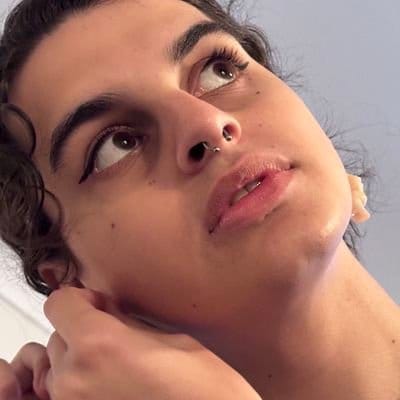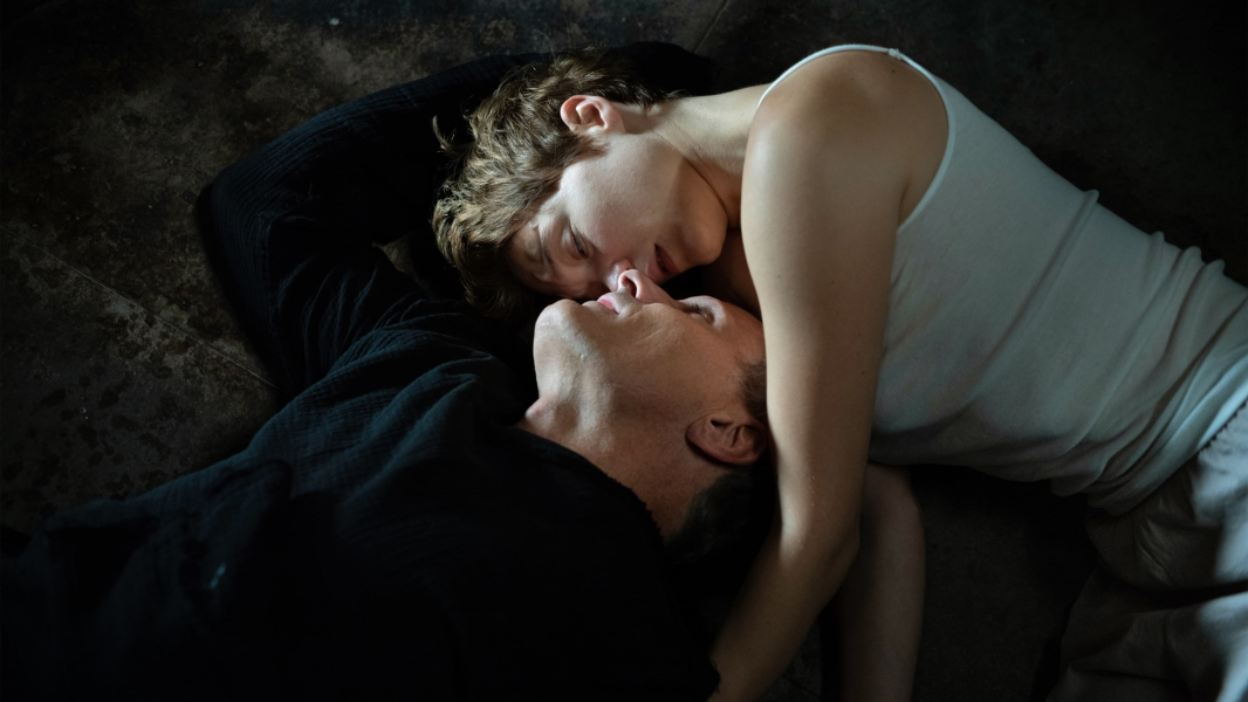Content warning: mentions of surgery, abortion, transphobia, and body horror
Body horror is a genre of film which means a surprisingly large amount to me. Tales of transcending the flesh, of grappling against the rebelliousness of your own body, of struggling against societal inscriptions of meaning upon bodies, they all feel so viscerally real. Behind the grotesque, often prosthetic effects, the gore and the pure sexuality of many body horror films are fundamentally human, very queer stories which touch upon many of modern society’s most pressing issues: bodily autonomy, overbearing government institutions, the effects of the onset of modernisation upon the human population. David Cronenberg is, of course, the undisputed master of the form. Body horror classics such as Videodrome (1983) and The Fly (1986), as well as underrated gems such as eXistenZ (1999), have made him a revered figure in body horror and in genre filmmaking more broadly.
While to some, Cronenberg may come off as nothing but a mere provocateur, a man making shocking art for the sake of being shocking, to me he is one of those singular directors who is able to channel his many thoughts and proclivities (frequently repulsive, complicated and deeply, deeply horny) into an incredibly well-defined aesthetic and intellectual oeuvre which frequently prods and probes (often literally) into the true nature of modern society. As such, I was incredibly excited to hear that with his new film, Crimes of the Future (2022), he would be returning to the genre which he originated, working on his first film based on an original idea since eXistenZ. My excitement was heightened when it was announced that the stars would be Cronenberg regular Viggo Mortensen, Léa Seydoux and Kristen Stewart (potentially setting up a Cronenberg-helmed reunion with Robert Pattinson?). It quickly became my most anticipated film of the year, and I purchased a ticket for its first screening at MIFF 2022 pretty much as soon as they were released.
I arrived at the Forum eagerly an hour before the screening started, first in line, watching everyone else arrive and form an orderly queue halfway down Russell St. Eventually, we shuffled into the quickly packed theatre, my friends and I took our seats directly in the middle, and I watched as the opening credits and Howard Shore’s fantastic score began to play (Shore has done the score for every Cronenberg film since The Brood (1979) and they are consistently excellent, this latest being among his best work). While I had gone into the film thinking I had a fairly solid understanding of what it would be, what it was about and the themes it delved into, I was wholly unprepared for the revelatory, borderline transcendental experience which awaited me.
Crimes of the Future is the ultimate culmination of everything David Cronenberg has been exploring in his films for the past half a century. It is an incredibly rich text, rife with philosophical, political and artistic meaning; meaning which I am most definitely yet to fully unpack.
The film follows Saul Tenser (Viggo Mortensen), a celebrity performance artist in a future where humanity has begun to evolve on an individual level in response to an increasingly unnatural environment. Together with his partner Caprice (Léa Seydoux), Saul performs public surgeries where his newly developed novel organs are tattooed and removed to much fanfare. As a result of increased interest from shadowy government agencies and subversive underground groups, he finds himself wrapped up in wide-reaching political and artistic plots. On the bones of this sci-fi-body-horror-neo-noir premise, Cronenberg builds a layered and dense story, grounded in the meticulously crafted and expansive world which he creates around the unhuman and unnerving characters who, despite their weirdness and unreality, have an incredible depth of emotion and thought which drives their actions.
Frankly, what Cronenberg has managed to achieve here is an incredible chronicle of our times, filtered through the lens of a distant and almost unrecognisable future. The film touches on many of those themes I highlighted earlier as some of the defining ideas behind the body horror genre (bodily autonomy and the onset of an increasingly modern society to name but a couple), but it explores these themes in a much more nuanced and subtle manner than is usually expected. In fact, Cronenberg strips away a lot of the over-the-top, overly gross filmmaking tropes associated with his films, the true horror here coming not from the gag-inducing surgeries and violence, but from the very concept of one’s body being co-opted by others, of losing one’s ability to be in control of their own flesh. He takes the ideas which bubble under the surface of every body horror film and makes them star of the show, doing so with a deft touch so that is not readily available to the viewer exactly what the movie is trying to say, enough ambiguity instilled in its thematic presentation that it can be applied equally to broad political issues as well as the specifics of many individuals’ lives.
While watching, I couldn’t help but picture the film as a commentary on issues such as abortion rights or the policing of transgender bodies, particularly children, through legislation which bans access to life-saving treatments. I also felt personally connected to Saul, as if through him I was seeing a reflection of my own struggles against my body, my own desire to tame and conquer the flesh. It is a wonderful example of finding the universal in the specific and vice versa, to borrow an idea from James Joyce. This is just a small portion of the film’s content however, as the many themes which it explores stretch far beyond the realm of just human bodies and the ways they’re policed. We are confronted with environmental degradation, harsh industrialisation, radical transhumanism, radical sexuality, sex as revolution, grief, governmental bureaucracy, questions about art; what art is, what makes something art, how should we respond to art, how should art respond to us, and so, so much more. There is no one way to read the film, there is no one thing the film is trying to say. It is one of those truly special pieces which the viewer can imbue with as much or as little meaning as they please.
Less than a day later, I have no doubt that this is one of the best films I’ve ever seen, and have no problem declaring it one of my favourites of all time. It means a lot to me already, and I’m sure that with time and many, many repeated viewings it will only come to mean more. I’ve just scratched the surface of this one, and if it has taught me anything so far, it’s that we must penetrate much deeper than that to find true beauty and meaning.
Crimes of the Future can currently be found at the Melbourne International Film Festival (running from August 4th until the 21st in cinemas), with the final round of tickets for any sessions on standby to be released at 5:00 pm the day before each session. A limited theatrical release will follow in late August.

